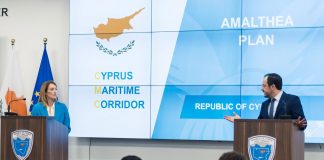Syria will hold parliamentary elections on 5 October, the first such poll since the ousting of Bashar al-Assad late last year and the formation of an Islamist-led transitional administration under President Ahmed al-Sharaa.
Voting is scheduled to take place across all electoral districts, despite the electoral commission previously indicating that balloting in several provinces would be delayed due to security concerns.
The 210-member People’s Assembly will be constituted through a mixed system under which one third of seats are appointed directly by the president, with the remainder filled by vote. The chamber is expected to begin shaping a wider political transition, including legislation to unwind decades of state-led economic policy and to consider treaties that could re-orient Syria’s foreign relations. Critics, including opposition figures and minority representatives, have questioned the breadth of participation under the new framework.
SANA reported that the poll would proceed nationwide despite earlier notices that balloting in three provinces would be postponed. Those areas include Sweida, where clashes in July between Druze fighters and Sunni Bedouin tribes underscored fragile local security, as well as parts of Hasaka and Raqqa, which are partly controlled by Kurdish-led forces. The electoral commission last month cited the need for additional preparations in these districts.
The vote follows a constitutional declaration issued in March to govern an interim period under Sharaa’s leadership. The document preserves a central role for Islamic law while stipulating protections including women’s rights and freedom of expression. It also concentrates significant powers in the presidency during the transition, a point raised by domestic critics and external observers.
Assad’s removal in December ended more than half a century of rule by the Assad family and a conflict that began in 2011 and devastated much of the country’s infrastructure and economy. The rapid collapse of regime strongholds in late 2024 enabled an opposition-led takeover in Damascus and brought to power figures previously associated with armed factions in the north. International responses have been mixed, with some regional governments re-engaging and others warning about the composition and record of elements within the new leadership.
Under the transitional authorities, relations with external actors have shifted. Al-Sharaa has sought to consolidate ties with several Arab states and to open channels with Western governments, while advocating sanctions relief to support reconstruction. His visit to New York for the UN General Assembly this week marked the first appearance by a Syrian head of state at the forum in almost six decades, signalling an attempt at diplomatic normalisation even as significant human rights and security concerns remain.
Domestically, preparations for the October poll have focused on arranging voting logistics and defining the scope of participation. The interim rules provide for an indirect electoral component in some areas and maintain provisions for presidential appointment to the Assembly. Transitional officials argue that these measures are necessary to ensure administrative continuity and to prevent security vacuums, particularly in districts where control is contested or institutions remain weak. Opposition activists counter that the structure entrenches executive influence and may limit pluralism in the first legislature of the post-Assad era.
Turnout will be closely watched in provinces that have seen recurrent violence or competing authorities. In Sweida, agreements reached earlier this year aimed to integrate local structures more closely with national institutions, but sporadic clashes and criminality continue to disrupt daily life. In the northeast, the presence of Kurdish-led forces and local councils complicates the organisation of a unified vote. The electoral commission has not detailed contingency mechanisms for displaced voters or for Syrians abroad, many of whom left during the war.
Economic management is expected to be an early focus of the new Assembly. The transitional government has indicated plans to revise price controls, restructure state-owned enterprises and attract external investment to rehabilitate energy, transport and water systems. Any legislative overhaul will take place under tight fiscal constraints and amid sanctions that, while partially eased by some states, still restrict access to finance and technology. The government’s ability to balance reform with basic service delivery will influence public confidence in the transition.
Foreign policy debates will also feature prominently. The presidency has signalled openness to treaties that could adjust security arrangements and economic partnerships, including with neighbouring countries and Gulf states. Engagements at the UN and with regional capitals have raised the prospect of broader diplomatic recognition of the interim authorities, contingent on steps towards inclusive governance and adherence to international obligations. How the new Assembly interprets its role in treaty ratification and oversight will be an early test of institutional evolution.
With less than a fortnight until polls open, the authorities face a compressed timetable to finalise candidate lists, ballot procedures and observation arrangements. The composition of the next People’s Assembly—and the degree to which it reflects Syria’s social and political diversity—will shape legislation during the transition and frame the path towards any future constitutional settlement. The conduct of the vote, and the handling of delayed districts, will serve as immediate indicators of the administration’s capacity to manage a complex post-conflict environment.



